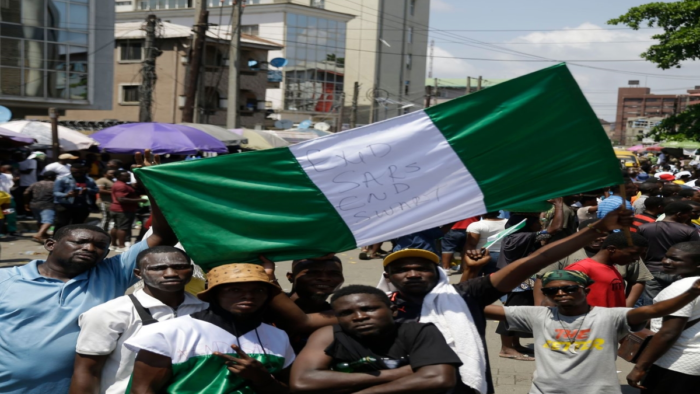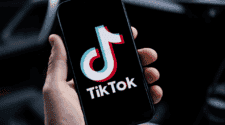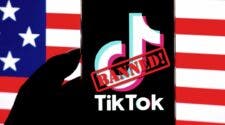Nigeria is a very complex country that has so many divides including religion, ethnicity and politics. Considering the current state of the nation, there is this anger that some Nigerians vent out in the most vulgar way possible. Most of these callous comments are usually on social media. This includes the likes of Facebook, WhatsApp, Instagram (Meta companies), Twitter, Google and TikTok. Unfortunately, most of these platforms do not keep track of these comments and do not delete them in some cases. For this reason and others, the Nigerian government has decided to regulate these internet companies.
Read Also: Nigeria gets set to enthrone its 5G digital economy

The National Information Technology Development Agency (NITDA) recently released a draft of the regulation on its website and Twitter page. Recall that on 5th June 2021, Nigeria banned Twitter after the company deleted a “harmful tweet” by the president of the country, General Muhammadu Buhari (Retd). After seven months, the government officially lifted the ban. However, Nigerians are not entirely comfortable with this regulation. Some believe that the government will use the regulation to suppress the voice of the people. However, the director-general of NITDA claims that before the reinstatement of Twitter, the company had three agreements. The agreements are
- Setting up a legal entity in Nigeria during the first quarter of 2022
- Paying of local taxes
- Cooperating with the Nigerian government to regulate content and harmful tweets
The last point is the problem with many Nigerians. What the people may consider the truth, the government may consider “harmful”. This is why an average Nigerian is not so optimistic about the regulation of these companies.
Twitter is yet to meet the conditions
We are now at the end of the second quarter of the year, however, Twitter is yet to meet any of the conditions. Nevertheless, the Nigerian government is now extending its agreement to other platforms. These includes Google platforms, Meta platforms and TikTok.
The title of the agreement draft is “Code of practice for interactive computer service platform/internet intermediaries”. According to the regulator, the agreements aims at “protecting fundamental human rights of Nigerians and non-Nigerians living in the country” as well as “define guidelines for interacting on the digital ecosystem.”
- Establish a legal entity; in other words, register with the country’s Corporate Affairs Commission (CAC).
- Appoint a designated country representative to interface with Nigerian authorities.
- Abide by all regulatory demands after establishing a legal presence.
- Comply with all applicable tax obligations on its operations under Nigerian law.
- Provide a comprehensive compliance mechanism to avoid publication of prohibited content[s] and unethical behaviour on their platform.
- Provide information to authorities on harmful accounts, suspected botnets, troll groups, and other coordinated disinformation networks and delete any information that violates Nigerian law within an agreed time.
Hadiza Umar, NITDA head of corporate affairs, said
“The new global reality is that the activities conducted on these online platforms wield enormous influence over our society, social interaction and economic choices. Hence, the Code of Practice is an intervention to recalibrate the relationship of online platforms with Nigerians in order to maximise mutual benefits for our nation,”.
NITDA has the approval of the presidency
According to the agency, it already has the approval of the presidency before writing the draft. With this statement, it is technically informing the companies that they have no choice but to comply. However, this is only a draft and the final regulations may be different. However, considering the situation preceding this draft, it is most unlikely that any changes will be significant.
NITDA also claims that it will collaborate with NCC, carriers as well as other broadcasting regulatory bodies to get the final regulation. The agency further claims that it will also welcome contributions from the companies which are part of the draft. This suggests that the likes of Facebook, Twitter and TikTok can send in their official contributions.
In addition to the companies involved, NITDA is also opening the draft for review by the general public. However, the agency did not provide any platform for receiving feedback from the public. Thus, it is most unlikely that it really needs the opinion of the public. After the ban on Twitter, there was a huge outburst and outcry by the Nigerian populace. This is because the temporary ban on Twitter crippled a lot of businesses. Nevertheless, the Nigerian government paid deaf ears to the cry of the people. Despite the strong criticisms on the Twitter ban, the government still gave the nod for the preparation of this draft.
Nigerian government to license social media and OTT operators
This seem to suggest that the government is not sensitive to popular opinion from users of these platforms. However, this will not be a surprise as it is not the first time the Nigerian government has attempted to regulate social media platforms. Recall that while announcing the ban on Twitter, the Nigerian government also approved the licensing of social media and OTT operators. This includes the YouTube, Zoom, WhatsApp and Skype.





